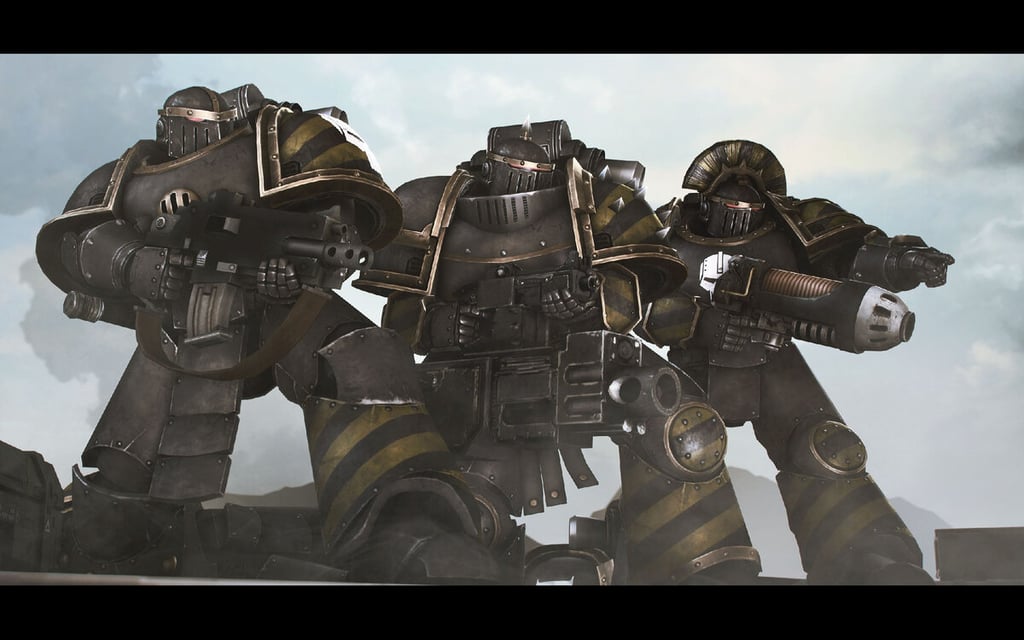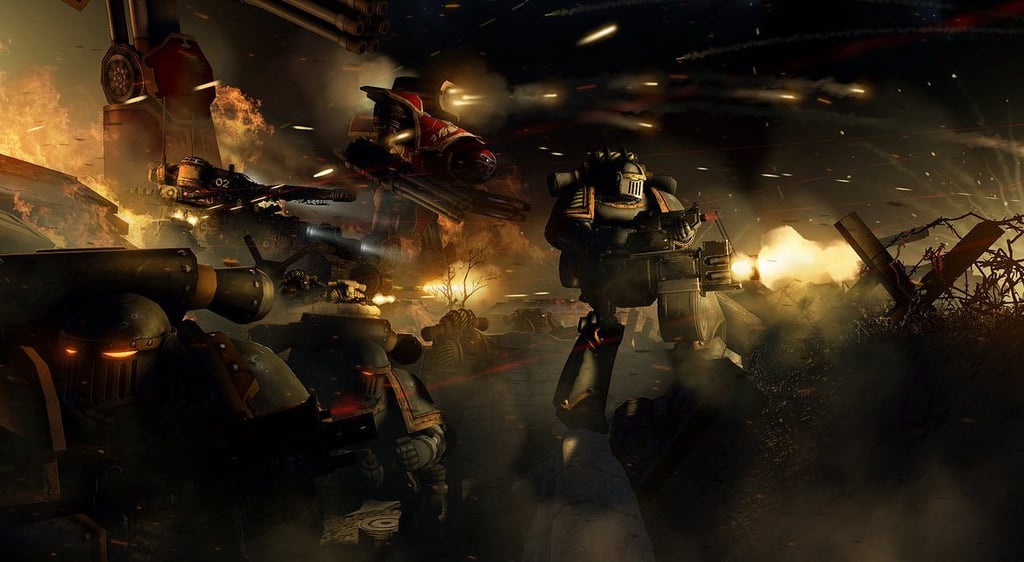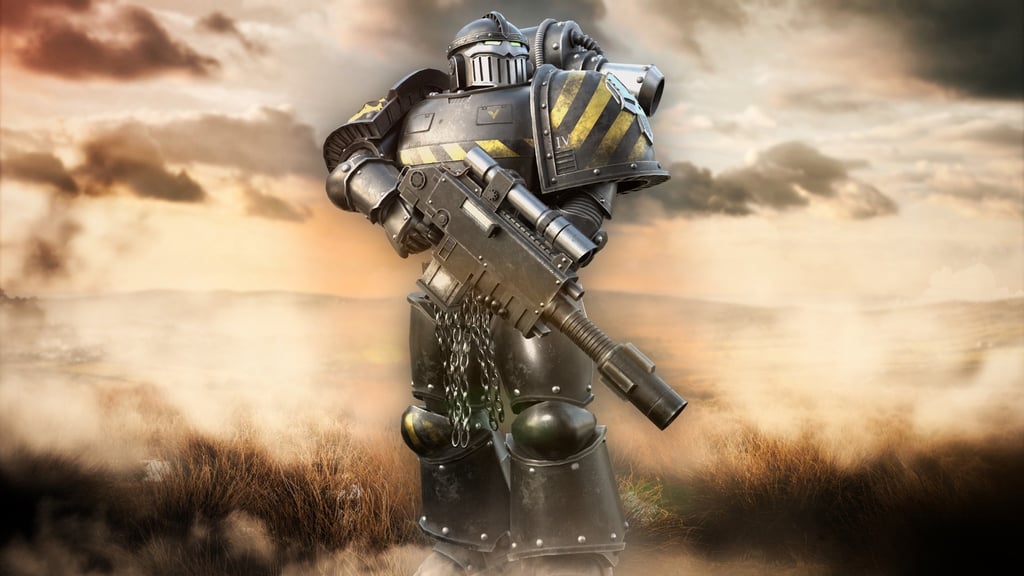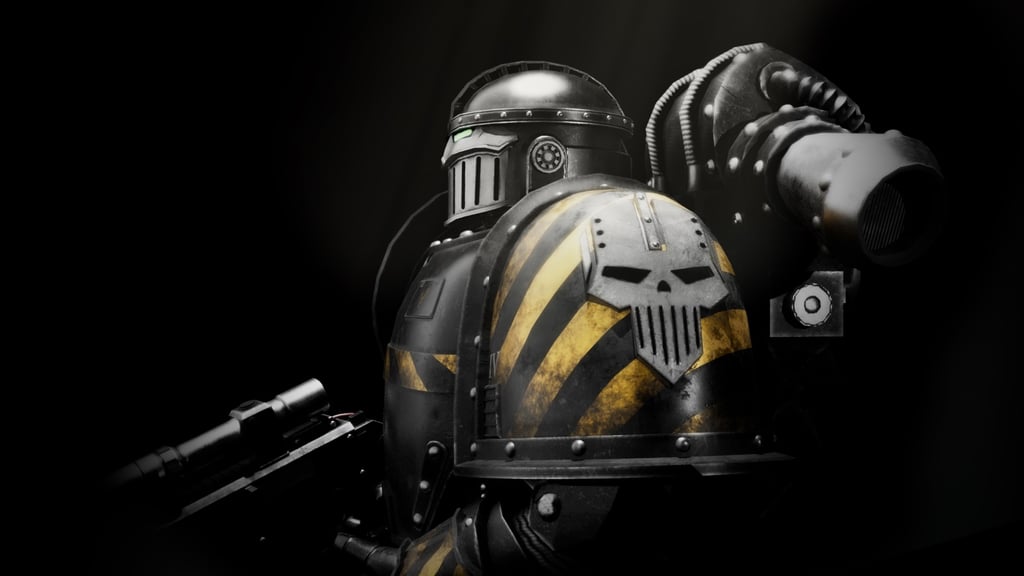Iron Without: The Combat Path and Doctrine of the Fourth Part II
WARHAMMER 40KIRON WARRIORSHORUS HERESY
Oroslan
3/15/20243 min read


Military doctrine of the Fourth
Heavy weapons priorities and a strategy of methodical frontal assault had remained steadfast and unchanged in the Legion since the Unification Wars, when the Fourth's specialization became apparent. Corpse Choppers consistently withstood the fortifications, level after level. Step by step we advanced to strategically important points on the front and captured them. They always moved in a straight line, without using complex tactical moves. Such concepts as “military cunning” and “honor in hand-to-hand combat” were not known to the Fourth.
It is important to note that by the 840s M30, almost all legions had already established their specialization, regardless of whether they had found their primarch or not. The fourth one has not changed. He didn't adapt at all, sticking to fighting patterns that were called Terran and considered outdated.
Astartes from other Legions and even their Primarchs began to express the opinion that the Fourth was completely devoid of imagination and tactical insight. In particular, this was directly stated by Horus Lupercal. The Corpse Choppers did not care that no one around noticed where their military skill was actually hidden. Yes, they always attacked head-on and seemed to push with brute force. In fact, these warriors understood battle better than their cousins. They meticulously calculated the sectors of fire, taking into account the attack vectors of each bolter and the oncoming counterattack vectors of each enemy weapon.
The type of soil, the weather conditions - everything mattered, everything was taken into account so that exactly as much manpower and shells were used in the battle as needed for victory. Not one bolt less or more. This is how the Fourth won - by calculating the enemy to the smallest detail, correlating the balance of forces, mathematically calculating the probability of victory in each battle, be it a void battle between two armadas or a duel between two warriors in the trenches.


Someone said, Fourth, that the fighting is mechanical. Some even called their methods of warfare dishonest. But discipline and efficiency are factors that could not be argued with. Therefore, in fact, many legions loved to fight alongside the Fourth. Because they could be relied on and they always followed orders. These warriors were not idealists; stupid heroism and empty bravado did not interest them.
All this led to the Fourth being regularly sent on important but inglorious missions. They became a "working" legion that plugged holes and fought where others would not fight. They were expected to follow orders and perform simple warriors valor.


Other large legions - the hosts of Russ, Manus or Horus - often disobeyed orders when they needed to split their forces. The fourth never contradicted his immediate commanders and, like a faithful workhorse, went where he was ordered. They perfected their siege skills, learned to operate with small forces against superior opponents, and constantly waged protracted campaigns of suppression. This situation had only one significant disadvantage for the legion, which was not looking for glory. A long confrontation with the enemy one way or another took the lives of the legionnaires, slowly but surely bleeding the legion.
Small detachments of the Fourth were often left as garrisons on the most dangerous planets. Often they themselves had to organize these garrisons - gather militia, build fortresses. The warriors always carried out the assigned task precisely, but this task was always assigned to them by someone else. The Corpse Choppers only fought and died as duty dictated. The source of the Fourth's stoic pride was their relentless work - they never paused between military campaigns, constantly moving from one war zone to another..

